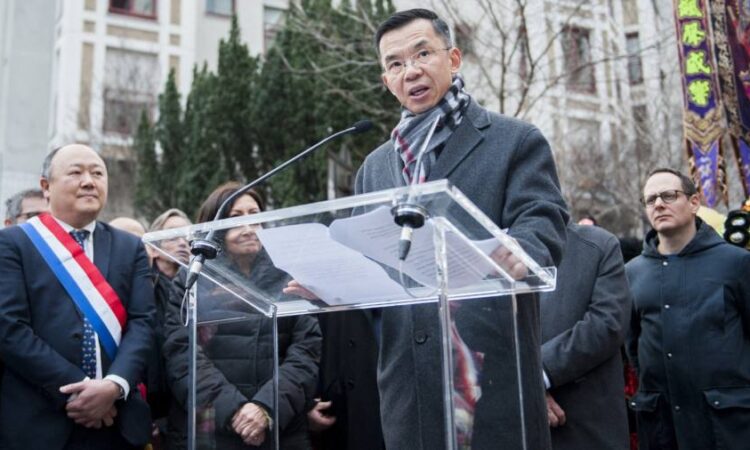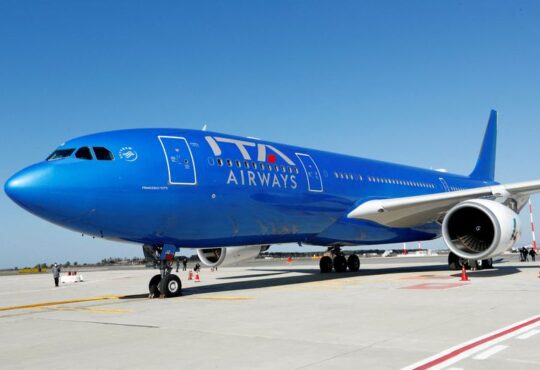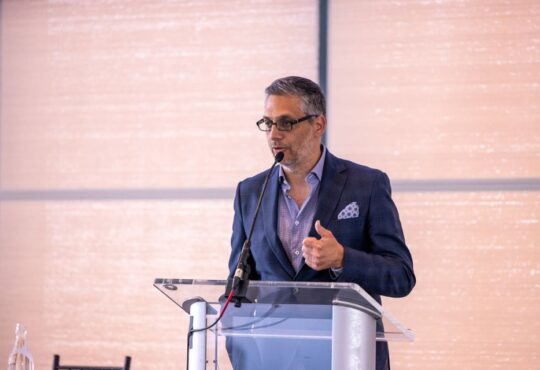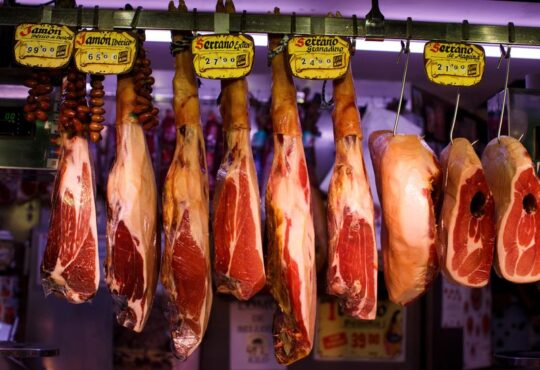
A Chinese ambassador who questioned the sovereignty of former Soviet states has damaged Beijing’s standing as it approaches a pivotal moment in its relations with the EU.
Although Beijing quickly sought to disown Lu Shaye’s comments, insisting it did recognise the sovereignty of post-Soviet states, the furore has coincided with the start this week of EU efforts to formulate a new policy towards China, which its 27 leaders will debate at a summit in June.
Analysts said the outburst from Lu, one of China’s more prominent “wolf warriors” — diplomats known for their aggressive and unapologetic rhetoric — threatened to undermine Xi Jinping’s efforts to portray Beijing as a peacemaker in Ukraine.
In recent months, the Chinese president has also courted European powers, hosting visits by Germany’s Olaf Scholz and France’s Emmanuel Macron.
“Lu’s comments and their timing are not very helpful for larger efforts to distance EU countries from the United States or to position China as a neutral peace broker for Russia and Ukraine,” said Austin Strange, an expert on Chinese foreign policy at the University of Hong Kong.
“Questioning the sovereignty of EU member states gives additional fodder to politicians and domestic audiences opposed to better relations with China, particularly those who are upset with China’s unwillingness to condemn Russia.”
Lu’s remarks in an interview with French news channel LCI last week, in which he said that “ex-Soviet Union countries do not have effective status under international law”, have amplified worries in Europe about China’s close relationship with Russia.
Despite Beijing’s efforts at damage control, with its embassy in France saying Lu was expressing his personal opinions, the ambassador’s claims were prominent in preliminary discussions among EU foreign ministers on their new China policy on Monday.
Officials briefed on the meeting said the affair had bolstered arguments from countries that caution against treating China as a trustworthy global power, especially in the context of the war in Ukraine.
The EU’s new policy towards China would retain its trifecta of “partner, competitor, rival” but “recalibrate” the prominence given to each aspect, the bloc’s chief diplomat Josep Borrell said after chairing the foreign ministers’ debate.
“Today it is clear that the dimension of rivalry has increased . . . the dimension of competition has also increased,” he told reporters. “We expect China to act in defence of international rules and norms, in their entirety and not selectively.”
Borrell said the “new approach” to Beijing would reflect the views of Ursula von der Leyen, European commission president, who this month called for “new defensive tools” to protect sectors such as quantum computing and artificial intelligence in the face of a “more assertive” China.
But some analysts questioned reading too much into the utterings of one diplomat, saying China’s overall policy was clearly to improve relations with the EU, despite tensions stemming from Ukraine and frictions with the US.
“I think different diplomats have different styles. Maybe sometimes, for some people, their words are thought to be provocative, [but] this is quite normal,” said Shi Zhiqin, an expert on China-EU relations at the Carnegie-Tsinghua Center for Global Policy.
Others said Lu’s background suggested he might have more licence than conventional diplomats to speak his mind. Unusually for a foreign ministry official, he served as vice-mayor of Wuhan, the capital of central Hubei province, in 2014 and was appointed to a senior Communist party position the following year.
“You don’t normally see Chinese diplomats being given a post in the CCP bureaucracy in the provinces, and the posting to the bureau of policy research is unusual,” said Charlie Parton, a former British diplomat who spent many years working in China.
“It’s not impossible for an MFA [Ministry of Foreign Affairs] official, but it does seem to indicate that he is out of the ordinary and therefore given greater freedom, or has bigger connections than a normal diplomat.”
This independence is reflected in Lu’s history of provocative comments, such as claims last year that foreign forces took advantage of widespread demonstrations against Covid-19 controls in China.
The French foreign ministry also summoned him in 2020 during the initial coronavirus outbreak over an article posted on the Chinese embassy’s website that suggested France was leaving residents of retirement homes to die.
Experts wonder, though, if he has gone too far this time. This year, another prominent “wolf warrior”, former foreign ministry spokesperson Zhao Lijian, was transferred to an obscure department. There was no official explanation for the move.
But some analysts said that despite the controversy, support for the diplomat in China could remain strong.
The subtext of his comments questioning the sovereignty of ex-Soviet countries, which include those in the Baltics, was China’s concerns over Taiwan, said Drew Thompson, a China expert at the Lee Kuan Yew School of Public Policy at the National University of Singapore.
Lu’s remarks on the former Soviet states followed a heated debate with the TV host over Taiwan’s right to self-determination. EU leaders have warned Beijing not to use military force against Taiwan, over which China claims sovereignty. Lithuania has also accused China of economic coercion after Vilnius allowed Taipei to open a representative office there.
“The undertone of his remarks was emphasising that Taiwan also lacks sovereignty and legitimacy under international law,” said Thompson.
“He was intentionally defending government policy and the party. His approach, albeit nationalistic, was still impeccable from Beijing’s perspective so he may not suffer any consequences.”
Among those expressing support for Lu was Hu Xijin, the former editor-in-chief of China’s nationalist state-run tabloid the Global Times and a staunch supporter of a more assertive China.
He said western media’s labelling of Lu as a “wolf warrior” was “offensive”. After all, Hu said, Lu’s manner during the interview had been “very polite”.






